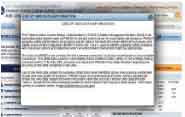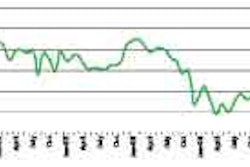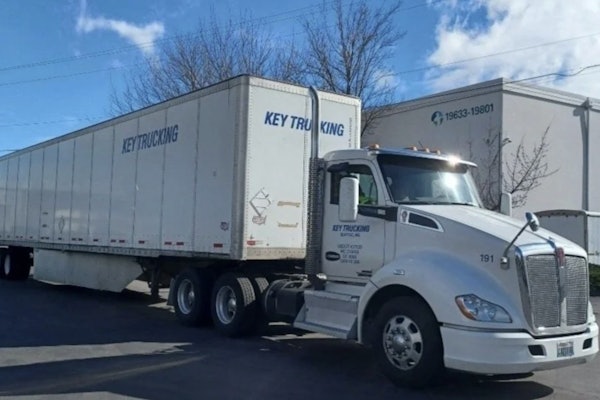FMCSA, trucking groups settle lawsuit
Agency tones down SMS disclaimer, removes ‘alert’
As part of a settlement with three trucking organizations, the Federal Motor Carrier Safety Administration was to change the disclaimer it places in the Website that disseminates Safety Measurement System data and to remove the term “alert” from its characterization of the data. The settlement followed mediation with the National Association of Small Trucking Companies (NASTC), Expedite Alliance of North America (TEANA) and the Air & Expedited Motor Carrier Association (AEMCA). The SMS is a core element of FMCSA’s new Compliance Safety Accountability (CSA) program.

Under the settlement, FMCSA was to replace, effective March 25, the orange alert symbol that signified a ranking above specified thresholds in the five publicly available Behavior Analysis and Safety Improvement Categories (BASICs) with a new symbol that is an exclamation point inside a gold triangle. Also, FMCSA was to replace the current disclaimer on the SMS data with the following language:
“The data in the Safety Measurement System (SMS) is performance data used by the Agency and enforcement community. A [gold triangle] symbol, based on that data, indicates that FMCSA may prioritize a motor carrier for further monitoring. The [gold triangle] symbol is not intended to imply any federal safety rating of the carrier pursuant to 49 USC 31144. Readers should not draw conclusions about a carrier’s overall safety condition simply based on the data displayed in this system. Unless a motor carrier in the SMS has received an UNSATISFACTORY safety rating pursuant to 49 CFR Part 385, or has otherwise been ordered to discontinue operations by the FMCSA, it is authorized to operate on the nation’s roadways. Motor carrier safety ratings are available at http://www.safer.fmcsa.dot.gov and motor carrier licensing and insurance status are available at http://li-public.fmcsa.dot.gov/”
In addition, FMCSA agreed to remove the word “established” from the phrase “established intervention thresholds” everywhere that phrase appeared on the public SMS Website. The three groups had argued that FMCSA’s thresholds basically were arbitrary.
“CSA is a safety-critical program that helps to reduce commercial motor vehicle-related crashes and save lives,” said FMCSA Administrator Anne Ferro. “Through this settlement agreement, we addressed the concerns raised by petitioners without compromising the CSA program and its safety benefits.”
“We applaud the Agency for affirmatively restating its sole duty to credential carriers as safe for operation over the nation’s roadways,” the three organizations said in a joint statement. “We believe these changes will disabuse shippers and brokers of the misconception that SMS methodology, percentile rankings of carriers, and monitoring thresholds are intended for their use in determining carrier fitness. This important settlement confirms for a confused industry that it is still the job of the FMCSA to certify carriers.” The disclaimer also is important, the groups say, because it will direct readers to FMCSA’s Licensing & Insurance database to confirm that carriers are authorized under existing regulations, reaffirming that unless a carrier is rated as unsatisfactory or out of service, the agency has determined it is fit.
“Our issue with the agency was that premature publication of SMS data before rulemaking effectively put the cart before the horse,” adds Henry Seaton, attorney for the three trucking groups. “The industry perceived SMS publication as effectively replacing the current safety fitness rating system with dire adverse consequences on competition, efficiency and small carrier viability. As a result of this settlement, the agency, while maintaining its commitment to transparency and accountability, has affirmed its statutory duty to credential carriers as safe to operate.” (For more on Seaton’s involvement in the settlement and his column on the matter, see Law, page 38.) – Avery Vise
Caption: A key part of the settlement between FMCSA and three trucking groups was replacement of the Website disclaimer on carriers’ SMS data.
IN BRIEF
* The Federal Motor Carrier Safety Administration extended the comment period on its Notice of Proposed Rulemaking regarding electronic onboard recorders and hours-of-service supporting documents. Comments originally were due April 4, but the agency granted a 45-day extension to May 23.
* The Federal Motor Carrier Safety Administration says that as of March 21, only household goods carriers and HHG freight forwarders needed to have evidence of cargo insurance on file with the agency.
* The Pipeline and Hazardous Materials Safety Administration extended the comment period on its Notice of Proposed Rulemaking to prohibit the transportation of flammable liquids in unprotected external product piping on U.S. Department of Transportation specification cargo tank motor vehicles. Comments originally were due March 28, but the agency granted an extension to April 27.
* The Truckload Carriers Association announced the grand prize winners of its National Fleet Safety Awards, sponsored by Great West Casualty Co.: Brian Kurtz Trucking Ltd., of Breslau, Ontario, won the award for truckload companies in the small carrier division (total annual mileage of less than 25 million miles); and Bison Transport of Winnipeg, Manitoba, won in the category for truckload companies in the large carrier division (total annual mileage of 25 million or more miles).
* The U.S. Department of Transportation announced a new and improved bridge oversight initiative intended to enable the Federal Highway Administration to more closely monitor how states are performing their bridge inspections and maintenance. DOT says the new approach will allow FHWA to more clearly and easily identify bridge issues in each state.











